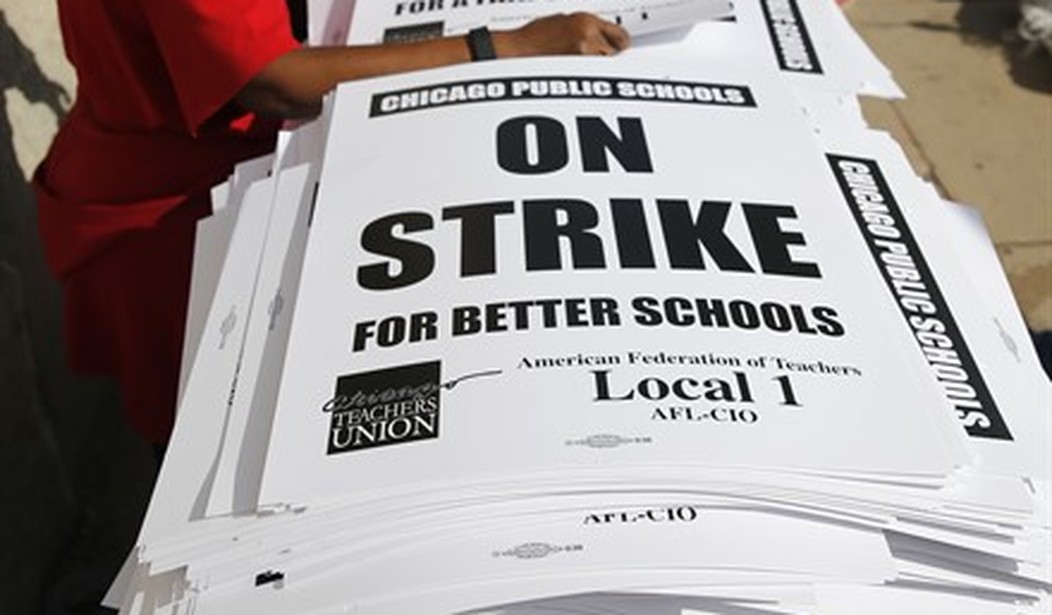Teachers at the largest school district in Ohio voted on Sunday to go on strike just days before the start of the school year.
The Columbus Education Association union, which represents over 4,000 teachers, nurses and other education professionals, is going on strike for the first time since 1975. According to a tweet from the union, 94 percent of its members voted to reject the school board’s final offer in a disagreement over learning and teaching conditions.
CEA is committed to bargaining for the safe and welcoming, properly maintained, and fully-resourced public schools Columbus students deserve.
— Columbus Education Association (@ColumbusEA) August 22, 2022
Jennifer Adair, the Columbus Board of Education president, said in a statement that the CEA’s vote on Sunday was “incredibly disappointing.” The school year, which begins on Wednesday, will start with roughly 47,000 students learning online rather than in the classroom.
We are saddened by the unfortunate situation our families, our community and, most importantly, our children now face.
Our offer to CEA put children first and prioritized their education and their growth. We offered a generous compensation package for teachers and provisions that would have a positive impact on classrooms. Our offer was also responsive to the concerns that have been raised by CEA during the negotiations process. Our community’s children are the Board’s priority, and our offer reflected that fact.
School starts on Wednesday, which means our children will be learning online. We know this is not ideal, but we have an obligation to continue educating and supporting students despite the current circumstances.
We value and respect our teachers, and we will continue on a path toward collaborative solutions that address what is best for our children.
CEA published on its website Aug. 11 that it intended to strike beginning Aug. 22 if they did not reach an agreement with the school board.
Recommended
At issue is disagreement over learning conditions such as smaller class sizes, full-time Art, Music, and P.E. teachers at the elementary level, and functional heating and air-conditioning in classrooms, as well as adequate planning time, a cap on the number of class periods during the school day, outsourcing positions to private, for-profit corporations from outside the community, and recruiting and retaining the best educators for Columbus students.
"We will continue fighting until we have safe, properly maintained and fully resourced schools in every neighborhood," CEA spokesperson Regina Fuentes said during a news conference on Monday.
Though the students in Columbus will be forced to begin the school year online, the CEA union's website encouraged supporters of the strike to not "engage in any so-called online synchronous and asynchronous 'learning' pursuant to CCS’ Alternative Opening Plan."
A day before CEA’s vote, a union representing about 2,000 employees at the School District of Philadelphia voted to authorize a strike if their demands, fair pay and better training, are not met by Aug. 31. The vote came just over a week before school starts.
Nationwide, school districts are facing a shortage of teachers ahead of the 2022-2023 school year. A Monday report from The Salt Lake Tribune explained that the shortage of teachers in Utah is making it “incredibly challenging to operate” and staff are asked to take on extra duties, which leads to higher resignation rates.
In early 2021, reports showed how teachers demanded to get the COVID-19 vaccine before going back to the classroom. This came after students had been learning remotely since the onset of the pandemic. NBC pointed out that “many teachers say they won’t go back until they’ve received the COVID-19 vaccine,” especially in large cities like Chicago.
The Chicago Teachers Union pushed for the delay of the school district’s reopening until teachers received at least the first dose of the vaccine, which would take “months,” the Chicago Tribune pointed out.
In Boston, Jessica Tang, president of the Boston Teachers Union, said in a published statement that teachers should be vaccinated “as soon as possible” in a statement after teachers were put behind those 75 and older in the “priority line” for the vaccine.
“If you are required to work with students in person — which thousands of educators have been doing for months now — you should be vaccinated as soon as possible for the sake of your colleagues, students, and the family members those children could infect, as well as the larger community,” Tang said in the statement.
Even after the schools reopened for the first time since lockdowns, Chicago teachers walked out at their jobs over COVID-19 concerns and students lost five days of instruction. A separate teachers' strike in Minneapolis over wages lasted three weeks. Teachers in Sacramento walked out on the job for similar reasons.
COVID-19 lockdowns and remote learning had devastating impacts on students, which Townhall has covered. Lower academic performance, absenteeism and mental health challenges have become prevalent among students.
A study published by the Brookings Institute in March, which compiled data from 5.4 million U.S. students in grades 3 through 8, found that average fall 2021 math and reading scores were lower than students in fall 2019 before the pandemic forced students to learn remotely. In addition, test score gaps between students in low poverty and high poverty areas grew by about 20 percent in math and 15 percent in reading. A separate report published by USA Today found that pandemic first graders were “way behind” in reading.

























Join the conversation as a VIP Member